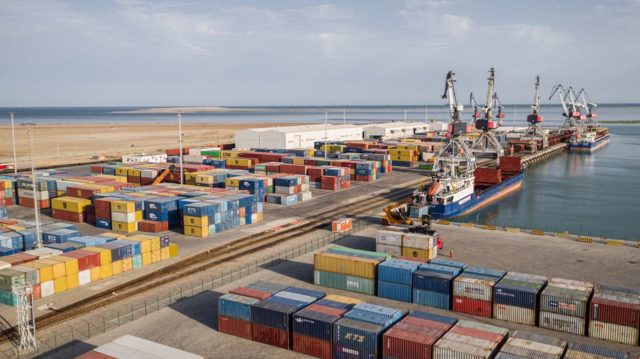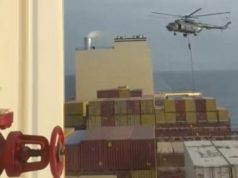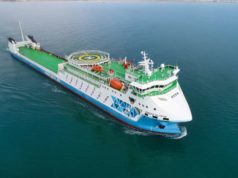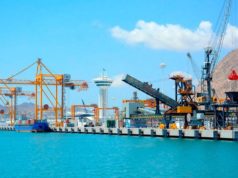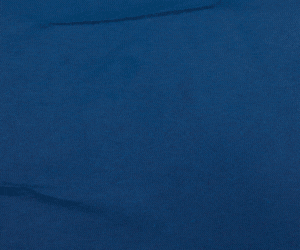Do you ever give much thought to how the things around you made it there? The laptop or mobile you’re reading this on, the spices in your kitchen, or even the clothes you’re wearing?
Logistics isn’t on many people’s radars until things go spectacularly wrong, like when a trading ship accidentally blocked the Suez Canal and nothing else could make it through.
Our modern lives and economies depend so much on logistics working. Within Eurasia – which has long been an important trading route between the East and West – sits the Port of Baku, nestled on the shore of the Caspian Sea in Azerbaijan. Dating back to the time of the Silk Road, it has helped to facilitate trade for centuries between diverse and disparate nations.
However, its significance should not be viewed solely as part of history or as static. The port is striving to adapt to the evolving needs of the logistics sector, both now and in the future. With 140 million people residing within a 1,000km radius, the Port of Baku is poised to become the premier destination for not only port operators, but also major international shipping and logistics companies.
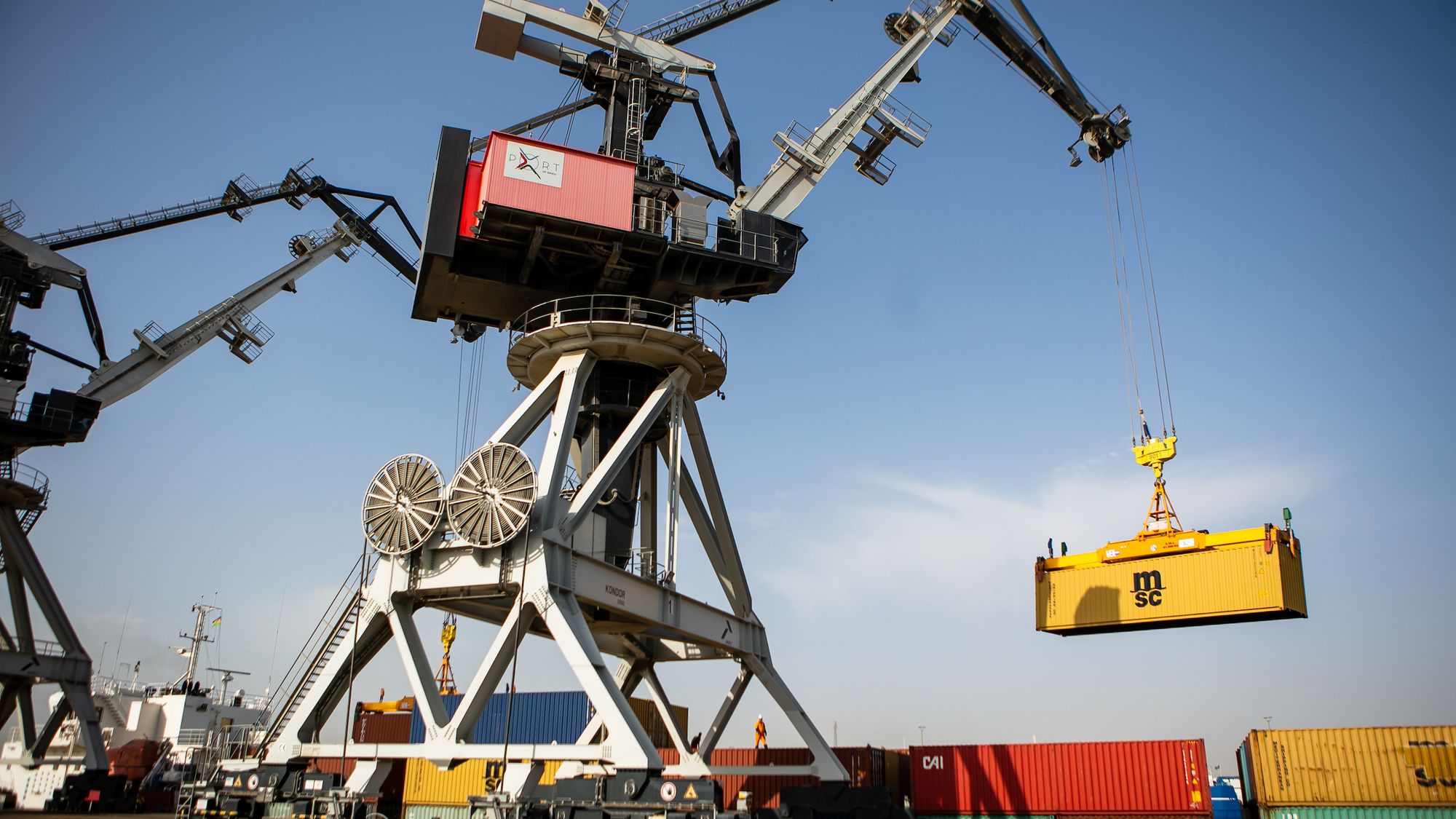 Industrial storage containers being lifted by modern cranes
Industrial storage containers being lifted by modern cranes
Evolving and expanding
The Port of Baku is strategically positioned to cater to the global trade and logistics sectors. Situated at a pivotal intersection – with Europe to the west, Asia to the east, and the Middle East to the south – it serves as a hub for connecting these three major regions.
The port has come a long way in the past two decades, undergoing significant modernisation and expansion. In a strategic move, authorities relocated the port approximately 70km south of the capital, providing seamless connectivity to the country’s extensive railway and highway networks, in addition to housing ferry and general freight terminals.
Have you ever driven past a port and seen the colourful rectangular boxes stacked up, almost impossibly high, on the back of vast ships? These are called twenty-foot equivalent (TEU) containers, and they deliver all kinds of electronics, clothes and consumer goods that you use and rely on every day. In 2011, the Port of Baku started the first phase of its expansion, so that it could help to deliver more of these goods around the world. Upon its completion in 2018, the port’s capacity surged to handle 15 million tonnes of cargo annually, including 100,000 of these TEU containers.
This marked a significant milestone in the port’s development, solidifying its position as a major hub in the Caspian Sea region. Now, the port is gearing up to start the second phase of expansion, which will increase the throughput capacity to 25 million tonnes, accommodating an additional 500,000 TEU containers.
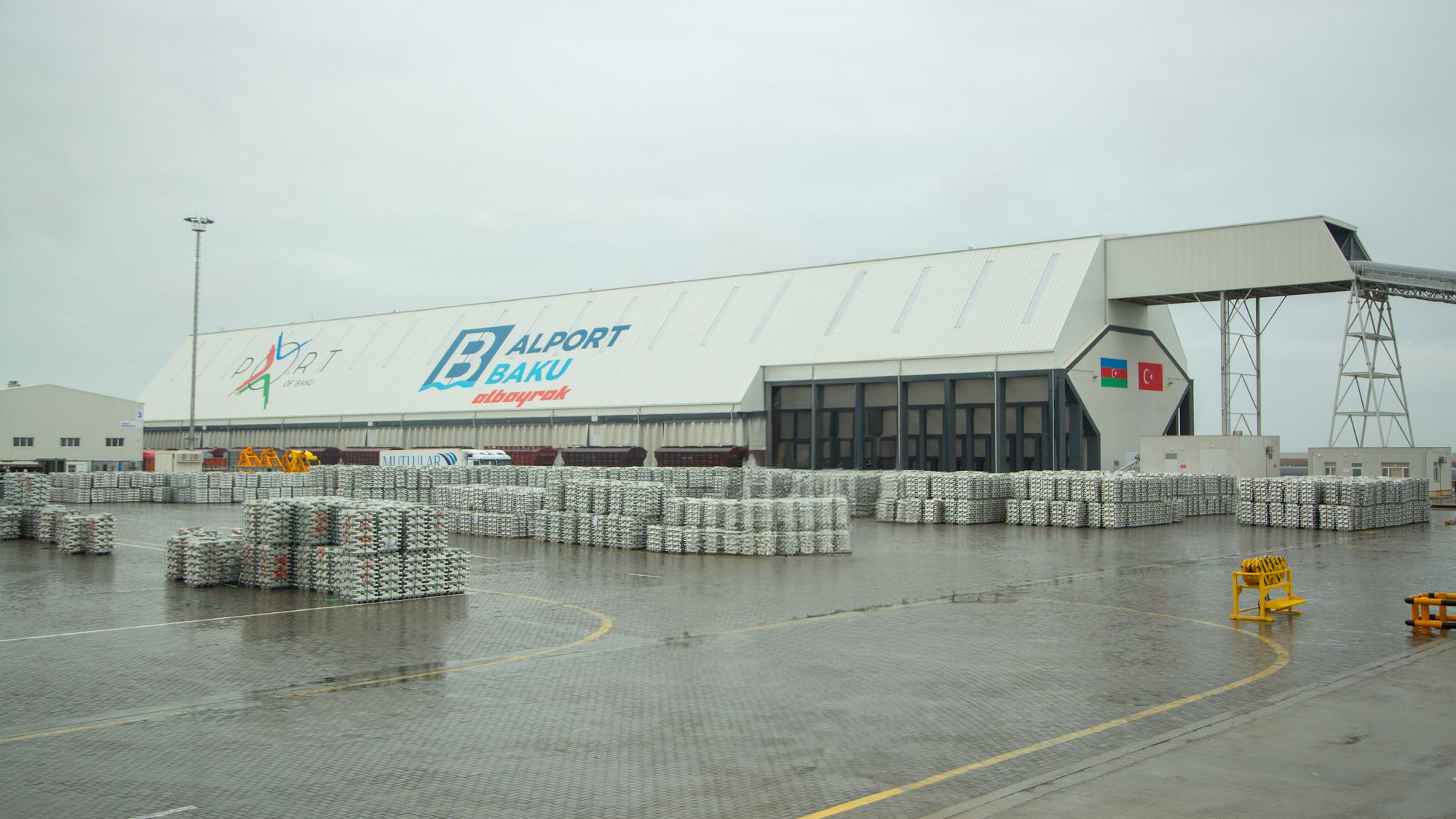 The modern fertiliser terminal in the Port of Baku area in the Alat settlement
The modern fertiliser terminal in the Port of Baku area in the Alat settlement
But it’s not just your everyday consumer goods that come through ports. There’s cars and commodities, and other materials that are trickier to handle. As such, the port also recently commissioned a fertiliser terminal with an annual throughput capacity of 2.5 million tonnes. This complex, which represents the first public-private partnership project in the port, includes a warehouses capable of storing 60,000 tonnes of various types of fertilisers. Another strategic project is an upcoming grain terminal which will have a throughput capacity of 1 million tonnes and a storage capacity of 50,000 tonnes.
These ambitious projects highlight the significant growth and adaptability of the Port of Baku to meet escalating trade demands. In 2023, the total handling volume reached over 7.3 million tonnes, marking a 51% increase compared with 2020.
Talking tech
Many businesses are prioritising technology to adapt their operations to deal with ever increasing volumes of global trade, and the Port of Baku is no exception. Infrastructure is just one part of the equation to streamline efficiencies and minimise impact. And the answer could lie in tech. To make a port’s operations more efficient and seamless, especially in the face of vast volumes of cargo, the port requires intelligent technology.
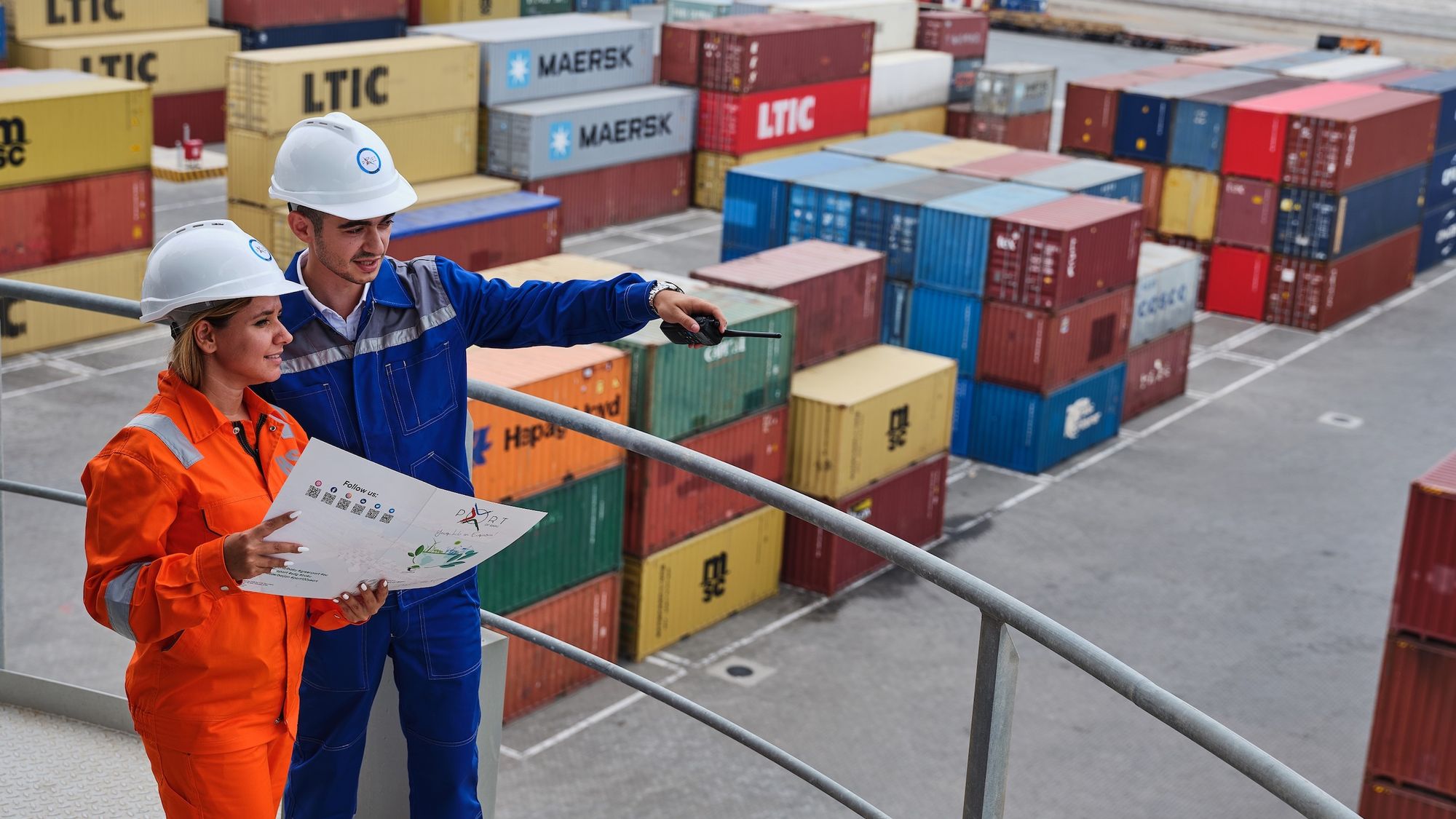 Workers outside on the Port of Baku in the Alat settelment (70 kilomets away from the capital Baku)
Workers outside on the Port of Baku in the Alat settelment (70 kilomets away from the capital Baku)
Port of Baku implemented a forward-looking solution, the Port Community System, to integrate multiple systems to plan, control, and execute various port operations. It also enables stakeholders to access historical cargo data and generate statistical reports, among other functions. Another notable initiative is the implementation of unique Dispatcher Software, which aims to digitalise reports and automates operational processes. Leveraging technology intelligently has been essential to streamline port operations, particularly when dealing with large volumes of cargo.
The Port of Baku has been integrating technology in another critical way: to reduce the port’s impact on environment. Distinguished as a “flagship project” by the European Union, the Port of Baku attained the prestigious EcoPort (Green Port) certification from the European Sea Ports Organisation (ESPO) in 2019, the first of its kind, renewed in 2021 and 2023. This certification signifies adherence to stringent environmental standards and encourages the adoption of technologies to optimise energy usage, enhance waste management, improve air quality, and embrace digitalisation and automation.
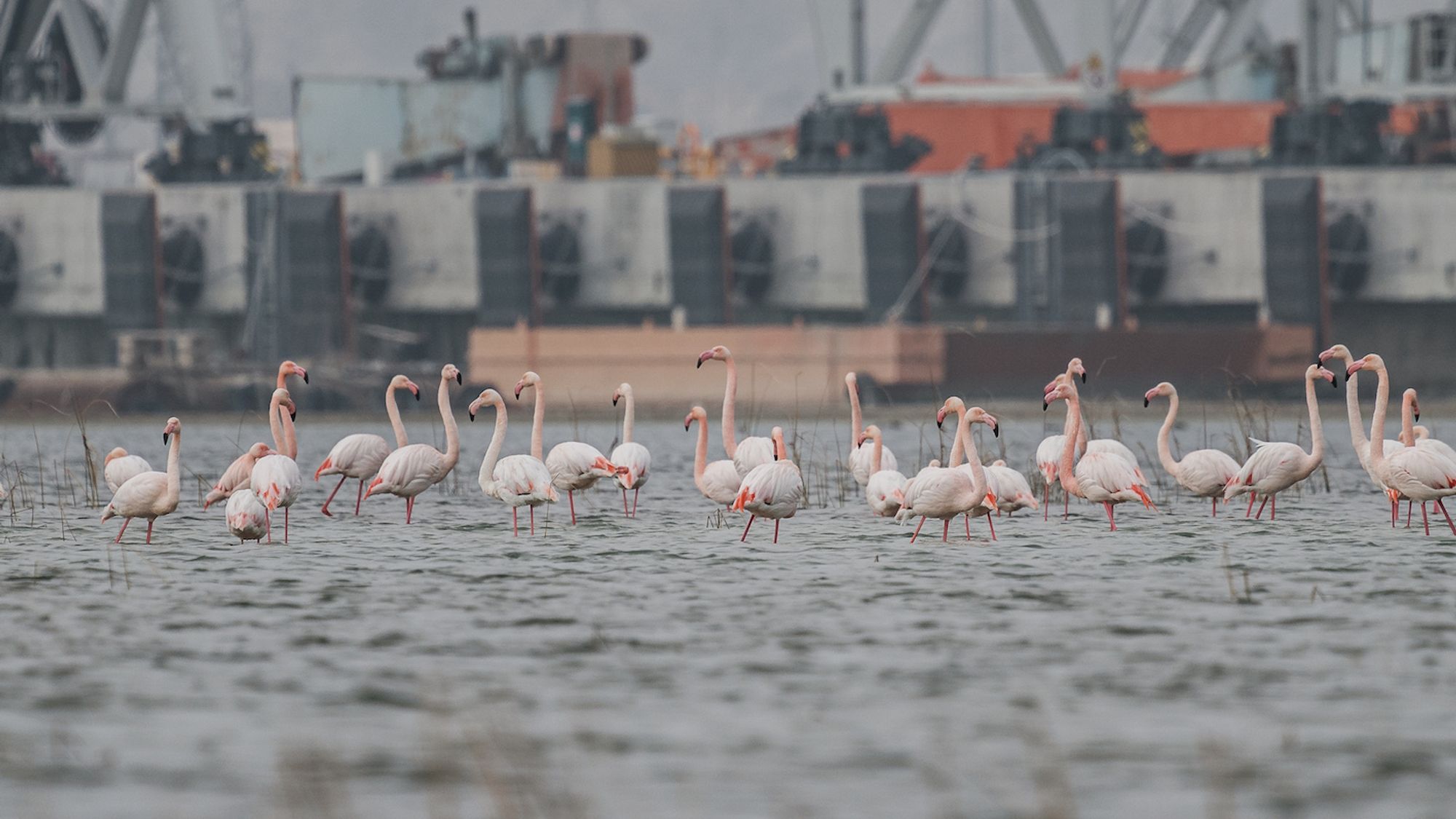 Around 200 flamingos every year migrate to the Port of Baku area from Africa
Around 200 flamingos every year migrate to the Port of Baku area from Africa
A future partner
By continually adapting to meet the evolving needs of today’s cargo providers, integrating cutting-edge technology, and expanding its infrastructure, the Port of Baku showcases its role as a reliable regional partner and a port that is looking towards its future. Trade is one of the cogs that keeps the world turning, and although shipping is a significant contributor to global emissions, the Port of Baku is recognising the role it plays within this giant, critical ecosystem to drive a better future.
bbc.com



